In this excerpt, Jiménez discusses the significance of the devil character to the Congo tradition of Panama and his perspective on playing the Major Devil character.
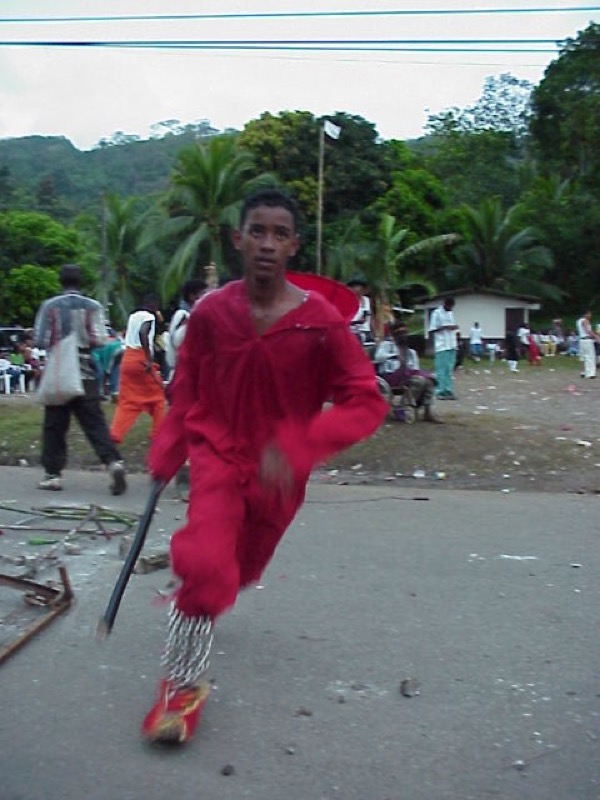


In this excerpt, Jiménez discusses the significance of the devil character to the Congo tradition of Panama and his perspective on playing the Major Devil character.
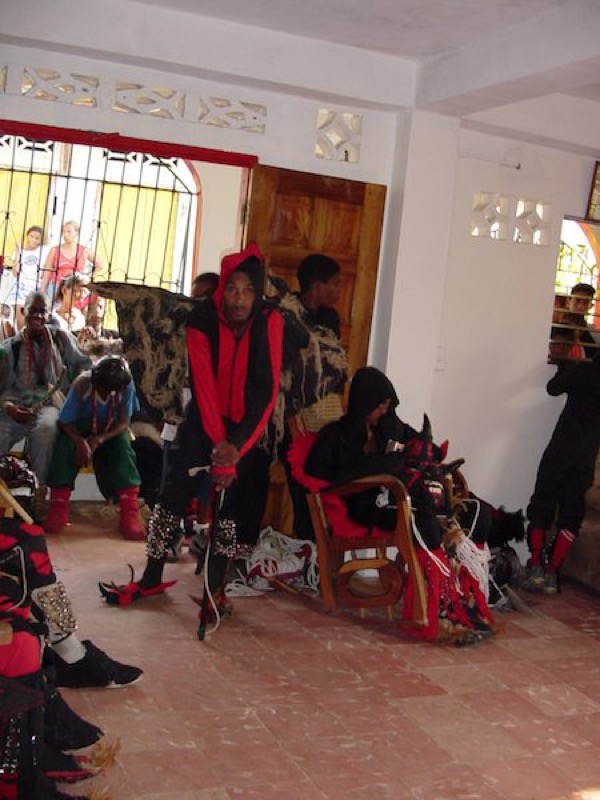
In this excerpt, Jiménez describes the “pujido”/”grunt” that the devil character uses to build internal energy and externalize it. He then discusses his interpretation of its relationship to the occult and a potential existential compromise.
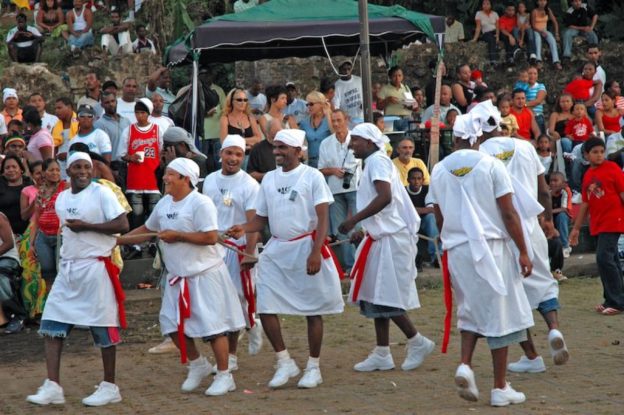
In this excerpt, Molinar shares his experience of being symbolically blessed or “baptized” as the Major Devil character. Just as the “pujido” or “grunt” helps to amplify internal energy, the process of being symbolically baptized helps to abate energy.

In this excerpt, Esquina discusses her pride for the Congo tradition and its importance to the towns of Panama’s upper coast.
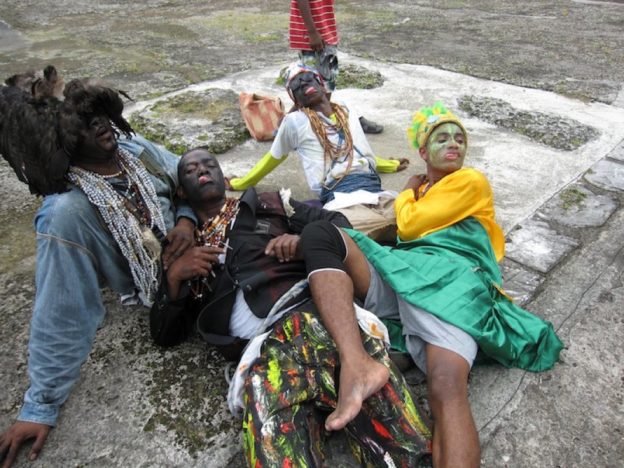
In this brief excerpt, Esquina describes the ways in which Congo season begins in Panama on the feast day of San Sebastian with the raising of the Congo flag.
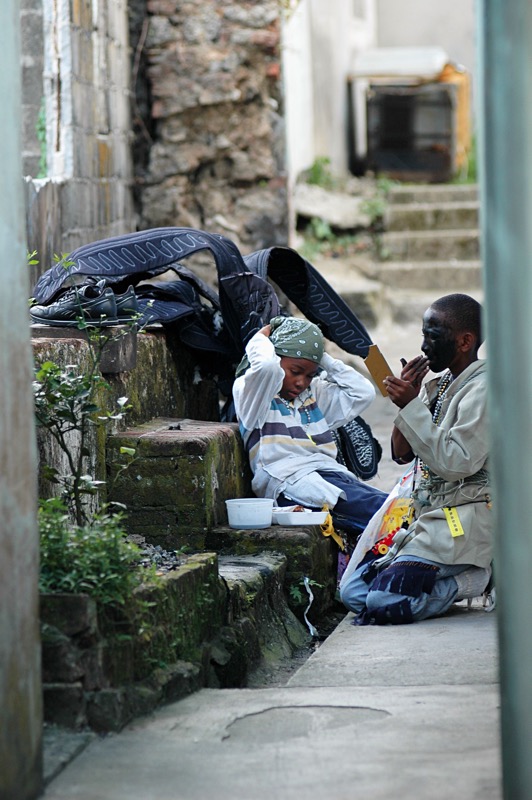
In this excerpt, Esquina discusses the changes she has seen in the Congo tradition over the course of her lifetime. Specifically, she talks about the rare existence of two palacios in 2003 and the shifting commitment of Congo practitioners who once participated in the tradition exclusively and without interruption during carnival season before the road was constructed in the early 1970s, which connected Portobelo and the rest of the Coasta Arriba to the broader Republic.
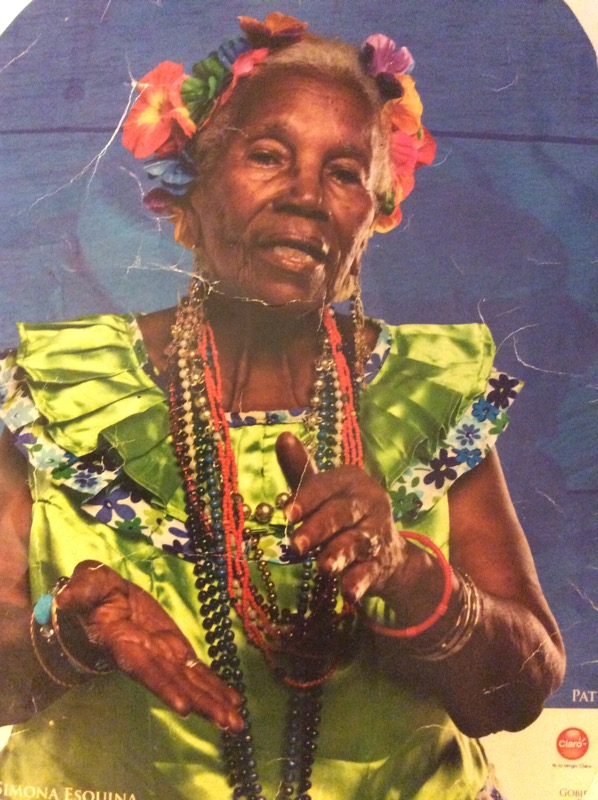
In this excerpt, Esquina shares one of her fondest childhood memories, the one and only time that her mother danced in the Congo tradition.
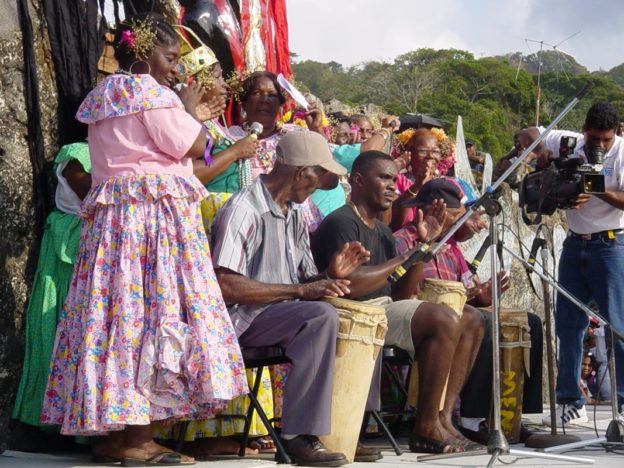
In this excerpt, Esquina discusses the meaning and significance of the Congo tradition to Portobelo.
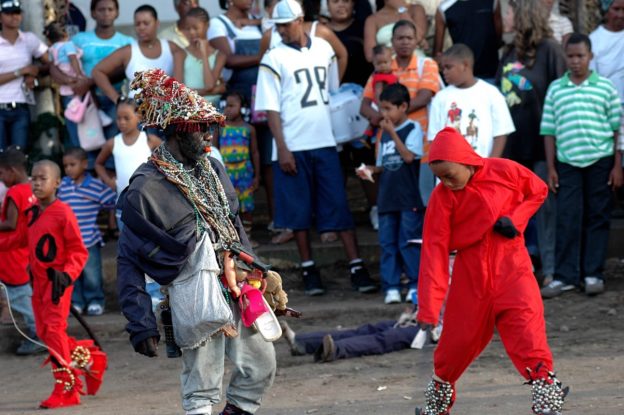
In this Excerpt, Esquina discusses the significance of her Congo name “Revellin.”
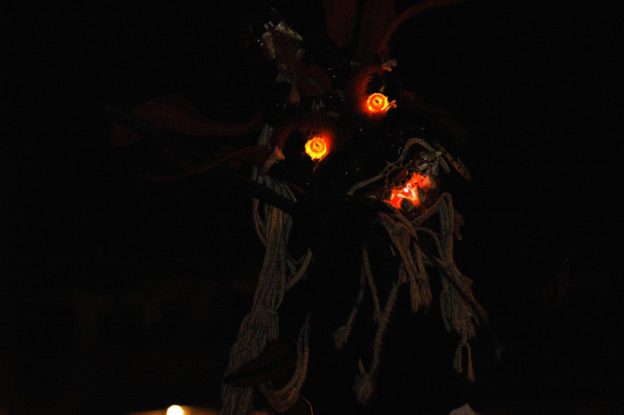
In this short excerpt, Molinar laments some of the escalating violence that he witnessed in the early 21st century.